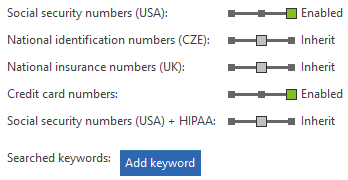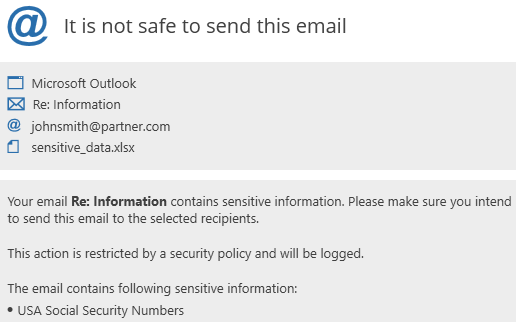You have been asking for it. And we listened. Handle GDPR easily with sensitive data discovery in the new Safetica 7.8. You can read about GDPR and what it means for your business in a different post. But let’s focus on the good news we have for you now.
Safetica has already been protecting your data using smart contextual analysis. This solution has proven to be very efficient and we’re happy with it. But we also listen to our customers and since many of you have asked for it, we are adding another layer of security to our product by introducing sensitive data discovery.

Safetica will find sensitive data for you.
You don’t have to know where sensitive data is anymore
GDPR requires securing files and documents containing sensitive data. If you have been worried about how you are supposed to know where all the personal information is, we can ensure you that Safetica can now help you identify these sensitive documents and show you where they are stored. This will enable you to recognize potential security problems with your data management and existing business processes. Now you can prepare your company’s security to comply with GDPR. To simplify starting with your data discovery we’ve even formulated a few content rules. You can of course also define custom keywords or regular expressions.

Use our pre-defined content rules or define your own.
Sensitive data in an email? Safetica knows and notifies you
Even if you decide not to scan and categorize your potentially sensitive files, Safetica can still notify your users when they are about to send an email which includes potentially sensitive data. This way you can educate your employees about working with sensitive data without restricting their workflow in any way.

Safetica helps your employees understand they are working with sensitive data.
What’s next?
We're very proud of our new content scanning capabilities, but we consider this only the beginning, as our team is already working hard on expanding the new features and integrating them further. More news to come in 2018, the year of GDPR!
Want to know more about new Safetica 7.8? Join us at the webinar!
Next articles

Have You Discovered the New Safetica?
In April 2024, Safetica unified its product offerings into a single, comprehensive data security solution. Take the next step and discover the power of Safetica.

